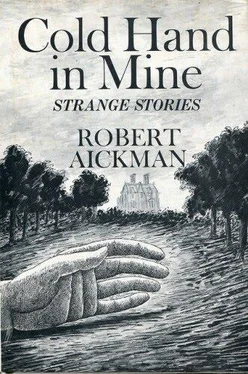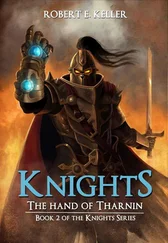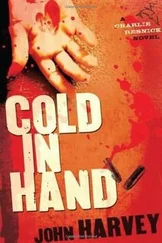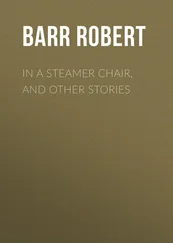"It just struck me for one moment that you might have seen into the future. All these people slavishly doing nothing. It'll be exactly like that one day, you know, if we go on as we are. For a moment it all sounded to me like a vision of 40 years on — if as much."
And indeed I had to take a moment to consider.
"But they're doing it all the time," I objected. "Now. Well, not this moment. I think not this moment. But you can go up and look tomorrow. See for yourself."
"It's not something I particularly want to see. Forty years on. Though I was at Harrow, strange as it seems."
I admit that I was surprised. I doubt whether I had then knowingly met another Harrovian, though I knew the song he had quoted.
"I was sacked, of course."
I attempted an appropriately expressive look before returning to the matter in hand.
"Maureen must have seen," I continued. "Isn't that why she's not here? Wasn't it all too much for her?"
He eyed me a little; then said nothing. I suddenly apprehended the possibility that he might attribute Maureen's breakdown simply to me.
I pressed my point about the people upstairs. "Do you know how much Maureen knows? Some of what there is to know is pretty shattering."
"I really don't doubt it. I agree with all you say. I told you so."
"There's a bit more. Something rather different."
"Do you want to talk about it?"
"I think I should."
"Sorry the coffee's finished."
"It was good."
"Well?"
So I told him about the even odder events of that morning and of the night before. After all, I had to tell someone.
"So we've got the Un-Dead in too?" he commented.
I stared at him.
"What's the matter?" he asked. "Isn't that more or less what you were implying?"
I must have continued to stare at him.
"Or did you mean something quite different?"
"On the contrary," I replied, "I think you've got it. It's just that it never occurred to me."
"That you were visited by a creature from another world than this? Or supposed you were. I thought that was your point?"
"What never occurred to me was —" I couldn't quite say it. "I've told you," I went on, "that Mr Millar gave me the impression of having something very much on his mind."
"A haunted man, in fact. Yes, I got that," said Gilbert.
I cannot pretend that my voice did not sink a little foolishly.
"This house might be haunted by the ghost of his victim."
Maureen's husband looked straight at me. "Victims. Didn't your friend in green put it in the plural?"
"Mr Millar might be always on the move, always running away. And going through the hoops in the attempt to forget. Through all the hoops he can find. Even asking me down for a drink."
"Still like 40 years on," said Maureen's husband. "But you mustn't let me philosophize. It's probably only that I'm not being a wild success myself. Why do you call him Mr Millar?"
I could see that it might irritate an Harrovian. But my answer, though a mere inspiration of the moment, I rather liked. "To link him with the rest of the world. He's one who needs it."
"I see," said Maureen's husband. "I'll think about what you've told me. I've never doubted that old Millar was a dead loss. I suppose I've kept away from him for that reason. Of course we're not in a position to move just at the moment. You might say that the tangible factors outweigh the intangible. So forgive me if I don't offer to sit up with you waiting for the line of nameless horrors." His expression changed. "You will forgive me? To start with, I can't leave the kids and I can hardly bring them with me."
"I never even thought of it," I replied; which was true.
"If you come screaming down the stairs at any time, don't hesitate to knock me up. Knock hard, because I sleep hard after slogging all day at the filthy shop. Besides it might scare away the apparitions."
I should perhaps have been grateful for a slightly different attitude, but one had to take the man as he obviously was. I attempted one more word.
"I see it's no business of mine, but I do sincerely advise against staying long in the same house with those people upstairs. If they were to go, of course it would be different."
"It might not, of course, from what you say. But the real trouble is that there's always something. Not just something wrong, but something badly wrong. I can see that Millar's got on your nerves and I don't blame you either. But if you'd ever lived in some of the places that Maureen and I have lived in since I was invalided out. . Believe me, my friend, there's always something that's bloody about living among the toiling masses. From my point of view this place is a real oasis. You may see what I mean, when you start looking for somewhere else. Mind if I get the kids down again?"
"I'll go," I said. "Thank you for listening."
"Any time," he said. "Always a friendly bosom on which to lay the troubled head. I'll tell Maureen you looked in. When she's more compos, that is.
"
Needless to say, Maureen's husband proved to be almost gruesomely in the right of it. I could find nowhere else to live that was even possible; and I found much on offer that was quite horrible. That was after spending almost the whole of the next week in the search; regardless of my duties to Major Valentine. A week does not sound very long, but it is surprising how many small, dark cavities six days can unearth.
In any case, the unit of a week was critical. I should have liked at least to be sure of having somewhere else to go before having to face another Saturday and Sunday.
Messrs Stallabrass, Hoskins and Cramp seemed to be carrying on as usual, though as I was out of the house for the greater part of each day, it was impossible for me to be sure. On the Thursday night, Mr Millar was beating it up with three noisy girls until the dawn was filtering through my windows, grey as Maureen's dress.
I decided that I could not face the Saturday and Sunday nights. On the Saturday evening, I retreated to my mother, after spending a long day visiting a list of impossible addresses (many of them stated to be accessible on a Saturday only — often on a Saturday afternoon only, perhaps between two and four).
"What a surprise!" exclaimed my mother. "I wasn't sure I should ever see you again."
And when, against some reluctance on my part as well as against the usual resistance on my mother's, I returned to Brandenburg Square in the later part of the Monday morning, I found a transformation.
In the first place, I had to open the street door with my key. This was unknown during "business hours": the staff of Messrs Stallabrass, Hoskins and Cramp, and their sporting friends, pushed in and out so incessantly that a locked front door would have been ludicrous. It would have been entirely out of harmony with the firm's way of life and what would now be called "image".
Within all was quiet. All the room doors were shut, which was also quite unknown. This time I applied myself to several of the handles with confidence. Every door I tried was locked.
I put down my canvas bag and went outside again, the front door swinging shut behind me on its heavy spring.
The firm's unusually large brass plate had gone. Even the phantom shape of it was fainter than usual in these cases; the firm having been with us for so much less than the customary (or then customary) 40 or 80 years. I picked a bit at the screwholes, but nothing peeped out. I stood back and looked up at the windows of the house. All were shut, but there was nothing unusual about that. I had never noticed an open window on the floors occupied by Messrs Stallabrass, Hoskins and Cramp. I reflected that it would be no use enquiring in the basement, as Maureen's husband would be at the provisions shop. (I wondered for the first time who was nowadays collecting the children from school.) As people were now staring at me, I gave the front door a push and re-entered.
Читать дальше












